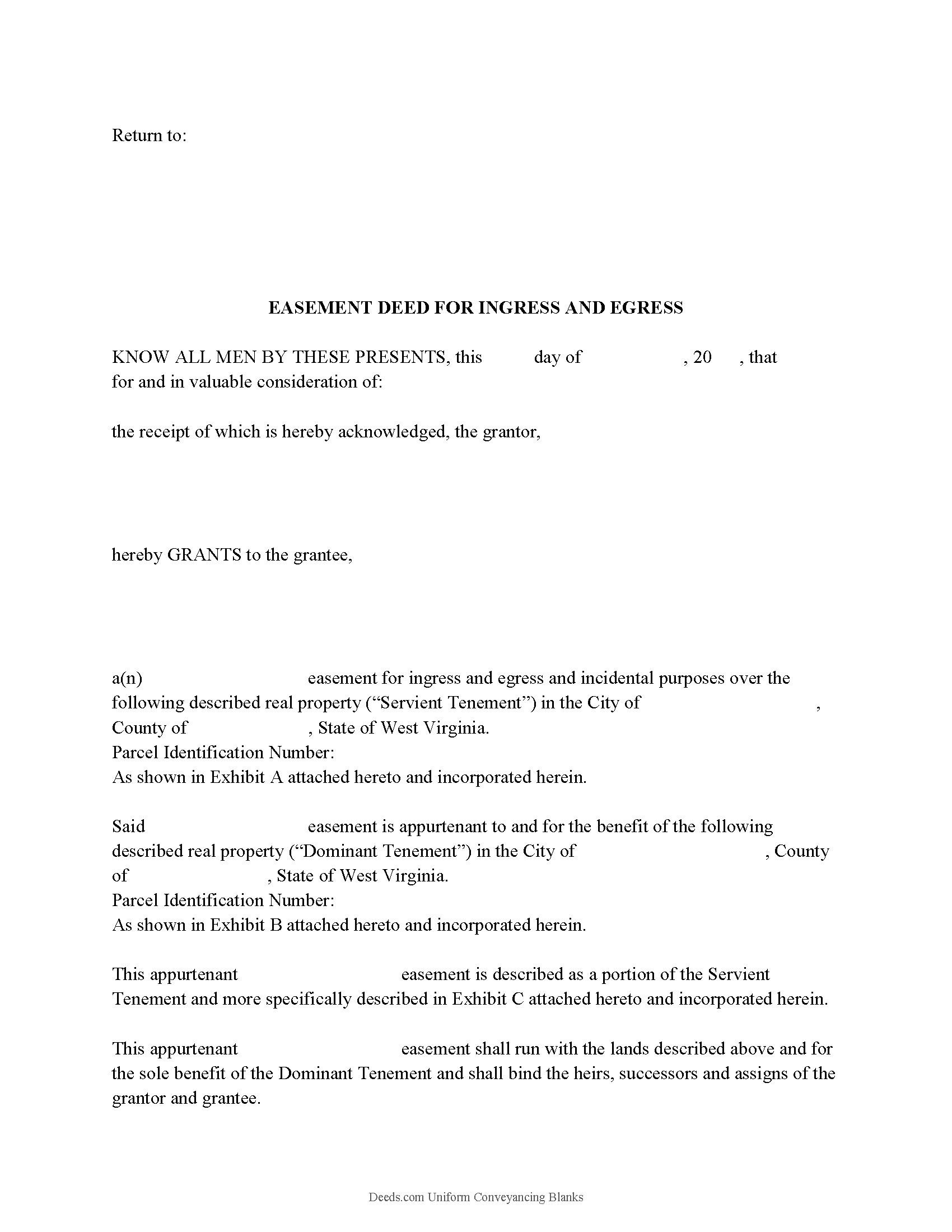Download West Virginia Easement Deed Legal Forms

West Virginia Easement Deed Overview

An easement deed can be created to allow one person the right to use another's land for a specific purpose. An easement is a non-possessory interest in land. Unless an exception is made, every deed conveying real property in West Virginia will be construed to include all buildings, privileges, and appurtenances of every kind belonging to the lands conveyed (36-3-10). Any real estate deed or instrument in this state that initially grants or reserves an easement or right-of-way should describe the easement or right-of-way by metes and bounds, or by specification of the centerline of the easement, or by reference to an attached drawing or plat which may not require a survey (36-3-5a).
In order to be admitted to record in West Virginia, an easement deed must be signed by the grantor and acknowledged or proved by two witnesses (39-1-2). An easement deed must have a certificate of acknowledgment attached to the deed or written on it that has been made before the president of a county court, a justice of the peace, notary public, recorder, or clerk of any court within the United States (39-1-3). Easement deeds can be acknowledged in West Virginia or in another state. If an easement deed is acknowledged before a notary in a state other than West Virginia, the notary should certify the acknowledgment under his official seal (39-1-10).
Until an easement deed is recorded in the county where the property subject to the easement is located, the easement deed will be void as to creditors and subsequent purchasers for valuable consideration without notice (40-1-9). Any such deed that is duly admitted to record in one county where the real estate is located will be void as to creditors and purchasers in respect to other real estate in other counties until the deed is duly admitted to record in the county where other real estate may be situated (40-1-10).
(West Virginia ED Package includes form, guidelines, and completed example)